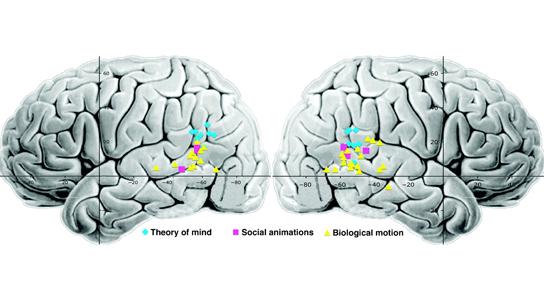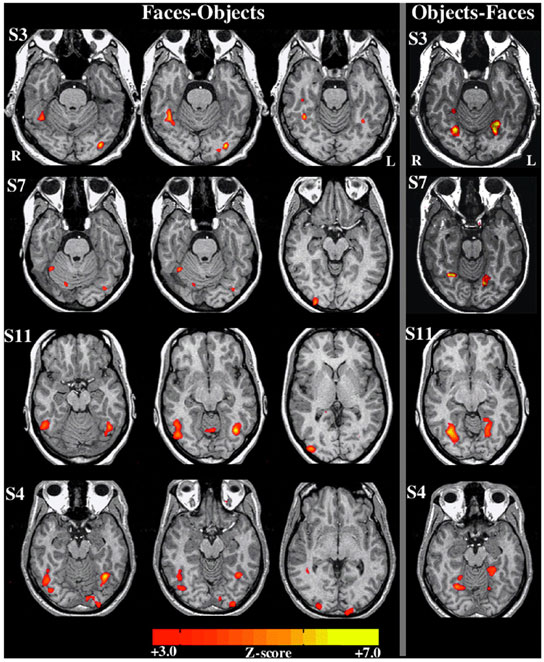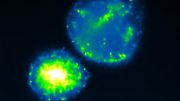
A mysterious gene mutation offers insight into the biology of language cognition.
David Skuse, a psychiatrist and an expert on language development working at the Institute of Child Health at University College London, encountered a mysterious ailment that affected a mother and son who had trouble following conversations and remembering words in their native language.
The grandmother also had memory problems relating to language. Half of the JR family had similar language deficits and brain abnormalities. These deficits seem to have been inherited across at least four generations. Skuse and his colleagues reported their findings in the journal Proceedings of the Royal Society B.

Localization of the fusiform and occipital ‘face areas’ and the parahippocampal place area in a few normal subjects
The genetic trait related to this problem could help explain how human brains link words to objects, concepts, and ideas. A lot of the affected family members are women who consider themselves stupid, states Josie Briscoe, co-author. The study found that this wasn’t the case, as all eight members possessed above average non-verbal intelligence.
The family erred in words that were conceptually similar, like ‘alligator’ and ‘crocodile’. They also struggled to pick out words of similar meaning, such as ‘revive’ and ‘resuscitate’. The scientists used MRI scans to study the affected brains. They had less neurons and glial cells in the brain regions linked with processing word meaning. This is akin to a neurological condition called semantic dementia. However, unlike semantic dementia, the language problems of the JR family do not worsen with age.
Skuse and Briscoe are hunting for genes underlying this problem. The study suggests that the deficit is inherited in a dominant fashion, hinting that it could be caused by a single genetic mutation. If that is the case, the gene hasn’t yet been discovered.
Reference: “A specific cognitive deficit within semantic cognition across a multi-generational family” by Josie Briscoe, Rebecca Chilvers, Torsten Baldeweg and David Skuse, 20 June 2012, Proceedings of the Royal Society B.
DOI: 10.1098/rspb.2012.0894








Be the first to comment on "Mysterious Gene Mutation Provides Window into the Biology of Language Cognition"